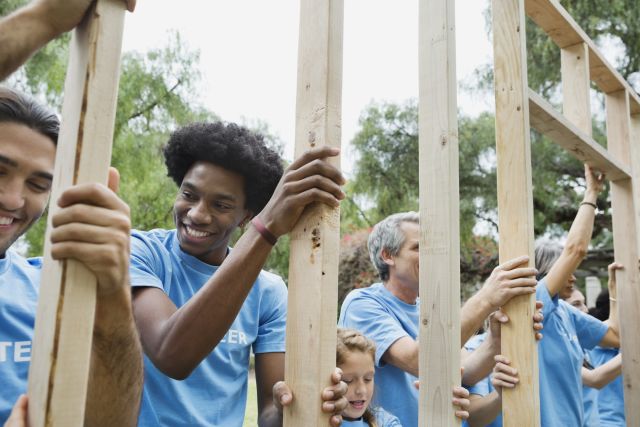Updated on November 8, 2024.
Generosity, even one small act, has the power to create a ripple effect. It can spread kindness from person to person until your good deed touches the lives of complete strangers. Before long, you can improve the lives of people you love, people in your community, and people you might not even know.
But starting a chain of generosity doesn’t just help others. You’re also doing yourself a favor. Being generous can improve both your mental and physical health.
Generosity boosts your physical health
There are a variety of ways to be generous, and even the smallest gesture can be meaningful. Generosity can involve giving material goods, like money or a gift. Or it can involve giving your time, support, or love. It can involve just about any act of giving, in fact, as long as it’s well-intended, considers another person’s feelings and situation, and adds positivity and value to their life.
When you engage in a generous act, it can affect you physically in several ways. For one thing, it can increase your levels of feel-good hormones, like oxytocin, serotonin, and dopamine. Oxytocin, often called the “cuddle hormone,” is typically released in the body through physical touch and inspires feelings of closeness. Serotonin is associated with feelings of happiness, while dopamine is linked to motivation.
Practicing generosity can also reduce your levels of the stress hormone cortisol. Studies show that these hormone shifts stimulate the region of the brain linked to empathy, caring, and feeling pleasure.
Generosity—especially volunteering—can also help you build social connections and get more physical activity. It may help you remain relaxed and even help lower blood pressure.
Take one 2016 study published in the journal Health Psychology, for example. Adults with high blood pressure were assigned to spend money on others for three weeks. They ended up with lower blood pressure than people who spent money on themselves. Another 2023 study in the Annals of Behavior Medicine suggested that giving is even related to lower levels of inflammation in the body.
Each of these benefits can help reduce the risk of chronic, life-threatening illnesses like heart disease and stroke. In fact, in a 2020 study published in the American Journal of Preventive Medicine (AJPM), volunteering at least 100 hours per year was linked to a 44 percent lower risk of dying prematurely.
Generosity can lift your mood
There are also mental health benefits to generosity. Volunteering has been particularly well-studied. Adults who volunteer tend to have:
- A better sense of purpose
- Higher self-esteem
- More life satisfaction
- A stronger sense of personal control
- Fewer feelings of isolation
This can help boost overall outlook and, importantly, lower the risk of depression. In the 2020 AJPM study, volunteering was linked to fewer depressive symptoms and more optimism in adults ages 50 and older.
Ways to practice generosity
Every little act of kindness counts. Here are several you can try today.
- Write a positive online review for a local business you like.
- Pay for the person behind you at the drive-through window.
- Join the bone marrow registry, become an organ donor, or donate blood.
- Take care of a neighbor’s pet or pick up their mail while they’re away.
- Shop for an older person or offer to help them with chores.
- Sneak a loving note or a small piece of candy into your partner or child’s coat pocket.
- Bake cookies or cupcakes and hand deliver them to nursing home residents.
- Watch a friend or family member’s children so they can get away for a few hours on their own.
- Donate to a nonprofit organization that you support.
Choose from this list or come up with acts of kindness on your own. If possible, try to complete multiple acts on your next day off. Psychology research suggests that planning and performing small acts of kindness back-to-back can improve your overall happiness. Imagine all of the people who will have better days if you start a chain of generosity.







